Resources
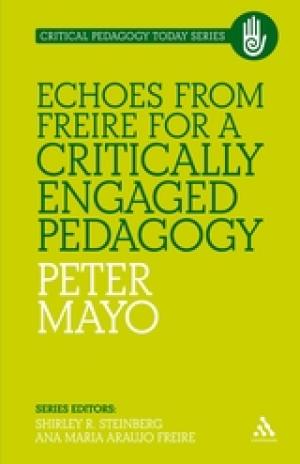
Click Here for Book Review Abstract: In this concise and accessible text, Peter Mayo outlines some of the major concepts in Freire's praxis. In pursuit of a critically engaging pedagogy, Mayo compares Freire's work with a range of other thinkers and educators, including Lorenzo Milani, Antonia Darder, John Dewey, Margaret Ledwith, Antonio Gramsci, and Henry Giroux. Chapters in the book include discussions of the State's role in education - specifically higher education; a critical analysis of the dominant discourse in education centering on 'competences' and the type of slant this discourse takes; a study of adult education through a Freirean lens; an historical view of Nicaragua's Freire-inspired literacy and popular education campaigns of 1980; a fresh perspective on the role of social movements in the contexts of social transformation; a new analysis of the relevance of Freirean concepts for transformative research, and an exploration of educators as intellectuals and social actors. The result is a compelling study of how Paulo Freire's writings continue to resonate around the world, and of how we must continue to apply and interpret them anew. (From the Publisher)
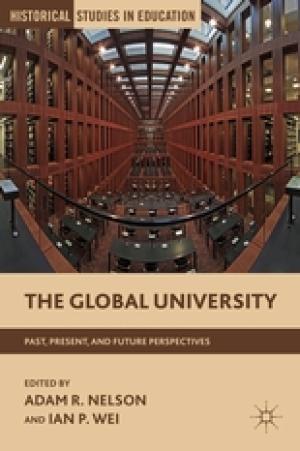
Engages a topic of pressing concern for government, business, and education leaders around the world: the race to establish 'world-class' universities. Some herald the globalization of higher education as the key to a dynamic and productive 'knowledge society.' Others worry that modern universities have come to resemble multinational corporations. (From the Publisher)
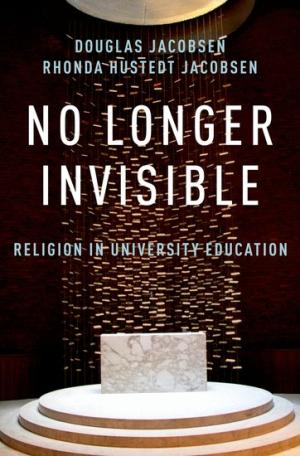
Drawing on conversations with hundreds of professors, co-curricular educators, administrators, and students from institutions spanning the entire spectrum of American colleges and universities, the Jacobsens illustrate how religion is constructively intertwined with the work of higher education in the twenty-first century. No Longer Invisible documents how, after decades when religion was marginalized, colleges and universities are re-engaging matters of faith-an educational development that is both positive and necessary. Religion in contemporary American life is now incredibly complex, with religious pluralism on the rise and the categories of "religious" and "secular" often blending together in a dizzying array of lifestyles and beliefs. Using the categories of historic religion, public religion, and personal religion, No Longer Invisible offers a new framework for understanding this emerging religious terrain, a framework that can help colleges and universities-and the students who attend them-interact with religion more effectively. The stakes are high: Faced with escalating pressures to focus solely on job training, American higher education may find that paying more careful and nuanced attention to religion is a prerequisite for preserving American higher education's longstanding commitment to personal, social, and civic learning. (From the Publisher)
Established in 2000–2001, the Center for Religious and Cross-cultural Studies (CRCS) is the only master's level religious studies program at a non-religiously affiliated university in Indonesia. In many respects, the program is experimental, operating within the dynamic political and religious environment of the Muslim world's youngest and largest democracy. Like other large democracies such as India or the United States, the Indonesian government and courts have their challenges and opportunities in navigating a multiplicity of religions. In Indonesia, this took on particular urgency in the context of religiously-charged conflict in the 1990's and early 2000's which helped lead to the establishment of the CRCS. This paper seeks to explore how students and key faculty relate to the program's mission and approach to the study of religion while tracing the development of religious studies as a discipline in Indonesia. Special attention is paid to the political and, at times, controversial aspects of approaching religion with secular and pluralistic frameworks and language. It was informed by interviews and surveys conducted between January and May of 2010.
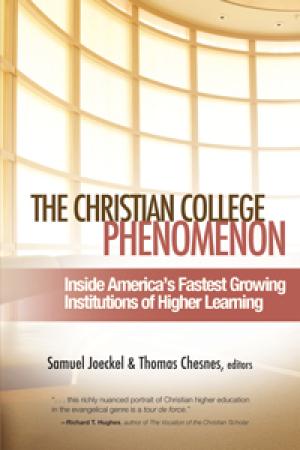
The Christian College Phenomenon explores the explosive growth over the last twenty years of institutions affiliated with the Council for Christian Colleges and Universities (CCCU). While public institutions of higher learning in the United States experienced a 3% growth in enrollment from 1990-1996, CCCU institutions witnessed a 36.9% growth during that same period. And in 2006, enrollment over the previous year at public universities grew by 13% and at other private colleges by 28%, but enrollment at CCCU institutions rose by 70.6%. Editors Thomas Chesnes and Samuel Joeckel have taken an empirical approach, surveying over 1900 professors at ninety-five CCCU colleges and universities and 2300 students at twenty different schools. The editors compiled responses to quantitative and open-ended questions on topics from pedagogy and politics to faith learning integration; they then made that data available to nearly thirty scholars who have turned their considered responses into chapters that are now organized into seven book sections, covering topics in gender, evolution, faith, learning, scholarship, and race/ethnicity: • TARGET AUDIENCE: The Christian College Phenomenon goes out to all those who study trends in American universities. Scholars and analysts, regardless of their faith commitments, will be interested to see what's happening in the CCCU schools that have experienced tremendous enrollment growth, particularly in comparison to their counterparts. What are these schools doing differently that can give all universities a new perspective on movements in contemporary education? This book offers a window into possibilities (From the Publisher)
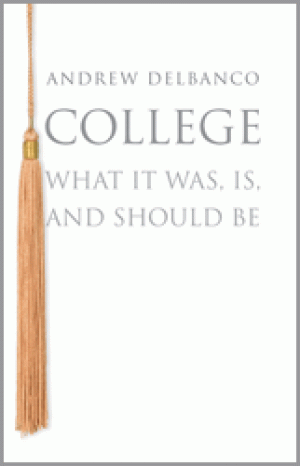
As the commercialization of American higher education accelerates, more and more students are coming to college with the narrow aim of obtaining a preprofessional credential. The traditional four-year college experience--an exploratory time for students to discover their passions and test ideas and values with the help of teachers and peers--is in danger of becoming a thing of the past. In College, prominent cultural critic Andrew Delbanco offers a trenchant defense of such an education, and warns that it is becoming a privilege reserved for the relatively rich. In arguing for what a true college education should be, he demonstrates why making it available to as many young people as possible remains central to America's democratic promise. In a brisk and vivid historical narrative, Delbanco explains how the idea of college arose in the colonial period from the Puritan idea of the gathered church, how it struggled to survive in the nineteenth century in the shadow of the new research universities, and how, in the twentieth century, it slowly opened its doors to women, minorities, and students from low-income families. He describes the unique strengths of America's colleges in our era of globalization and, while recognizing the growing centrality of science, technology, and vocational subjects in the curriculum, he mounts a vigorous defense of a broadly humanistic education for all. Acknowledging the serious financial, intellectual, and ethical challenges that all colleges face today, Delbanco considers what is at stake in the urgent effort to protect these venerable institutions for future generations. (From the Publisher)
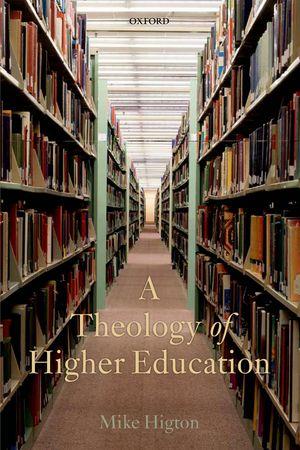
In this book, Mike Higton provides a constructive critique of Higher Education policy and practice in the UK, the US and beyond, from the standpoint of Christian theology. He focuses on the role universities can and should play in forming students and staff in intellectual virtue, in sustaining vibrant communities of inquiry, and in serving the public good. He argues both that modern secular universities can be a proper context for Christians to pursue their calling as disciples to learn and to teach, and that Christians can contribute to the flourishing of such universities as institutions devoted to learning for the common good. In the process he sets out a vision of the good university as secular and religiously plural, as socially inclusive, and as deeply and productively entangled with the surrounding society. Along the way, he engages with a range of historical examples (the medieval University of Paris, the University of Berlin in the nineteenth century, and John Henry Newman's work in Oxford and Dublin) and with a range of contemporary writers on Higher Education from George Marsden to Stanley Hauerwas and from David Ford to Rowan Williams. (From the Publisher)
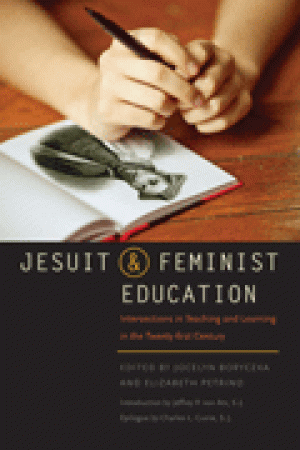
This book explores how the principles and practices of Ignatian pedagogy overlap and intersect with contemporary feminist theory in order to gain deeper insight into the complexities of today's multicultural educational contexts. Drawing on a method of inquiry that locates individual and collective standpoints in relation to social, political, and economic structures, this volume highlights points of convergence and divergence between Ignatian and feminist pedagogies to explore how educators might find strikingly similar methods that advocate common goals—including engaging with issues such as race, gender, diversity, and social justice. The contributors to this volume initiate a dynamic dialogue that will enliven our campuses for years to come. (From the Publisher)
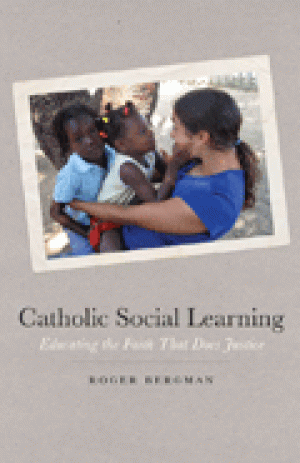
The canon for Catholic social teaching spreads to six hundred pages, yet fewer than two pages are devoted to Catholic social learning or pedagogy. In this long-needed book, Roger Bergman begins to correct that gross imbalance. He asks: How do we educate ("lead out") the faith that does justice? How is commitment to social justice provoked and sustained over a lifetime? To address these questions, Bergman weaves what he has learned from thirty years as a faith-that-does-justice educator with the best of current scholarship and historical authorities. He reflects on personal experience; the experience of Church leaders, lay activists, and university students; and the few words the tradition itself has to say about a pedagogy for justice. Catholic Social Learning explores the foundations of this pedagogy, demonstrates its practical applications, and illuminates why and how it is fundamental to Catholic higher education. Part I identifies personal encounters with the poor and marginalized as key to stimulating a hunger and thirst for justice. Part II presents three applications of Catholic social learning: cross-cultural immersion as illustrated by Creighton University's Semestre Dominicano program; community-based service learning; and the teaching of moral exemplars such as Dorothy Day, Rev. Martin Luther King Jr., and Archbishop Oscar Romero. Part III then elucidates how a pedagogy for justice applies to the traditional liberal educational mission of the Catholic university, and how it can be put into action. Catholic Social Learning is both a valuable, practical resource for Christian educators and an important step forward in the development of a transformative pedagogy. Roger Bergman is the founding director of the Justice and Peace Studies Program at Creighton University, where he is also Associate Professor in the Department of Sociology and Anthropology. (From the Publisher)